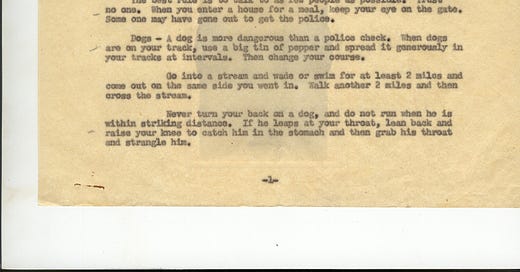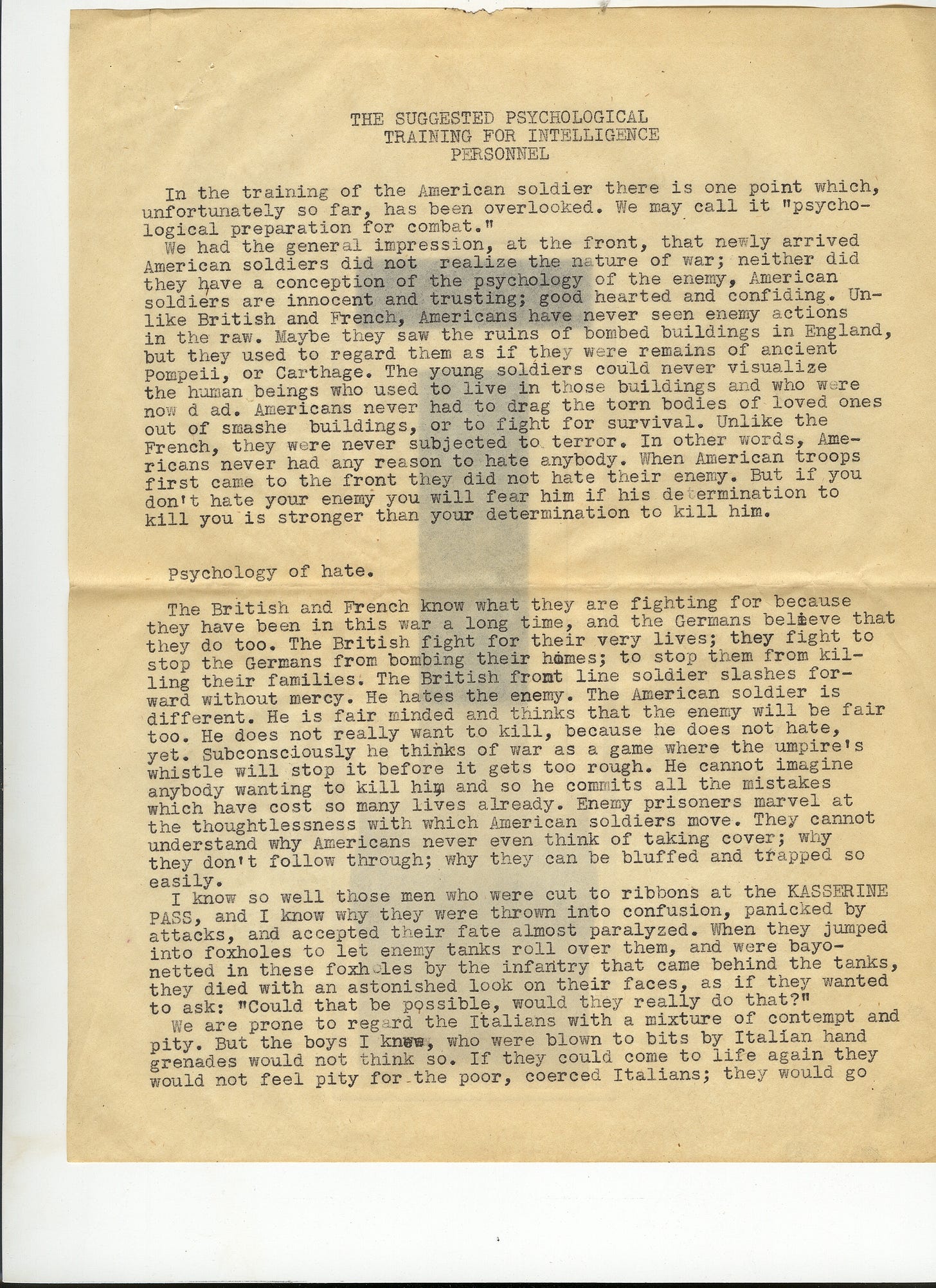After Opapa transferred to the “Special Intelligence” division of the OSS in the fall of 1944, he traveled to Bari, Italy for more training. While he didn’t write much in his diary during this period, he did keep a number of papers and notes which offer some insight into they type of training he received.
One of them, entitled “How to Get Along in an Enemy Country,” is my favorite. It’s a compilation of notes from a talk given by Captain Alan Lyle-Smythe, a member of the British secret service, on December 14, 1944.
Here are some of my favorite tips:
“Cigarette-stained fingers are a dead giveaway in Germany these days for German cigarettes have insufficient nicotine to stain the fingers.”
I love the detail! I didn’t know that nicotine could stain fingers, let alone that this would be something that people noticed. It reminds me of the scene in Inglorious Basterds where an Allied spy gives away his identity by counting to three using his ring finger rather than his thumb, demonstrating that he was educated not in Germany (where you count to three using your thumb) but in England or the US.
There there’s this wildly manipulative ploy to get out of jail:
“Get the jailer compromised by having him do you a small favor such as buying you a newspaper. Gradually get him to do other favors and eventually you will be in a position to insist that he help you escape. If he tries to back out, threaten to expose him. In Germany he will suffer the death penalty for having done favors for a prisoner.”
This one seems rather risky to me, but I suppose if you’re already in jail, odds are not really in your favor.
Finally, there are several about how to escape dogs, who are considered “more dangerous than a police check.”
“When dogs are on your track, use a big tin of pepper and spread it generously in your tracks at intervals. Then change your course.”
I guess dogs are distracted by the pepper?
On a more somber note, another one of Opapa’s files is a long description of “The Suggested Psychological Training for Intelligence Personel” that focuses on how to instill hate.
After describing the importance of hate, the author makes the following comparison:
“Hate is like gin. It takes awhile, and then, suddenly, it hits you. After you have seen your buddies killed; after you see bodies, or what’s left of them, piled up for burial; when you realize that they are after you too; when it finally connects in your mind that moral code does not exist in this way, then you will begin to hate, and want to retaliate…Until he hates the enemy with every instinct and every muscle, he will only be afraid. This is primitive psychology, a cruel and inhuman one. But war is all that.”
It’s a chilling paragraph, and a reminder of the brutality of war.
I wonder how it struck Opapa, whether he read it carefully or dismissed it, or didn’t think much of it at all. He wanted to be part of the action — to contribute to the war effort and to defeat Nazis and fascistm — but does anyone want to be reduced to hate?





